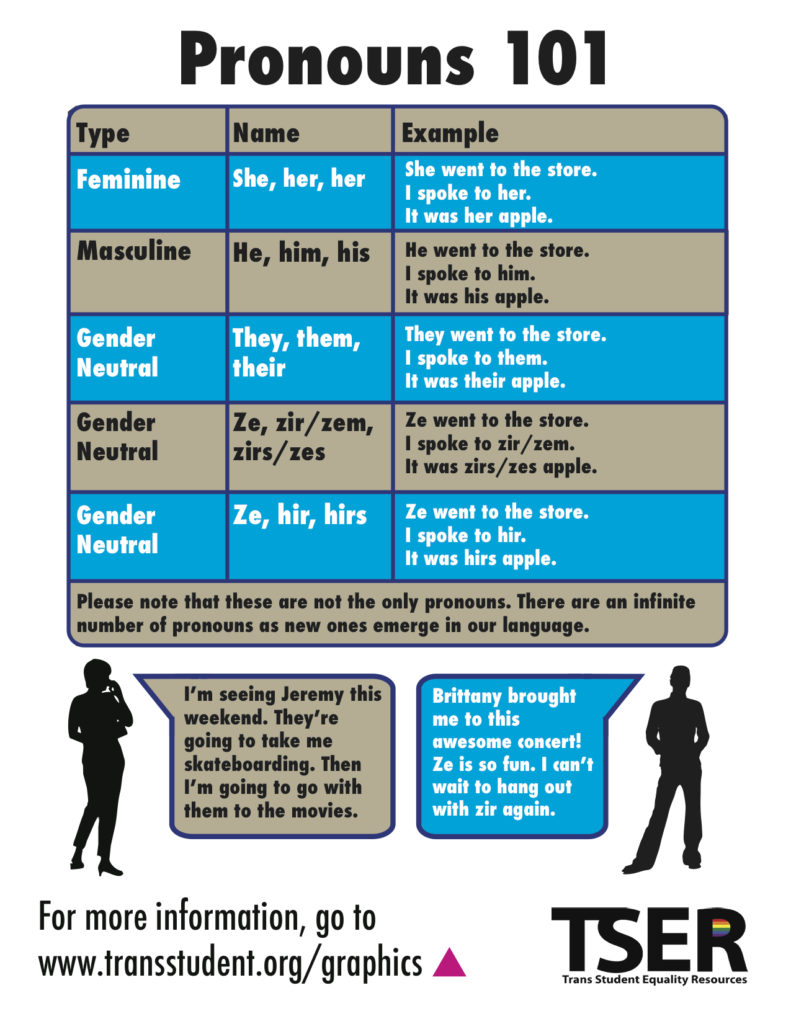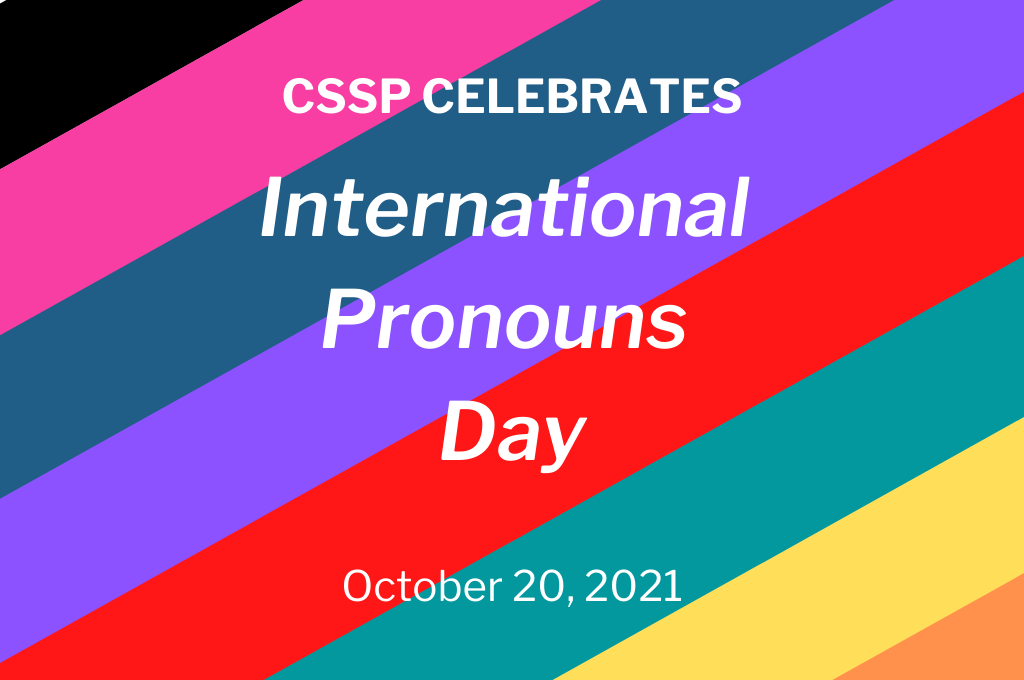International Pronouns Day is celebrated on the third Wednesday of every October. On this day, October 20, 2021, we mark the importance of acknowledging and honoring each person’s individuality and identity. It is one small step we can all take towards creating an equitable society in which all are welcome, respected, and accepted.
Pronouns are everywhere. They are such an ingrained part of our everyday language that they can often be considered unremarkable—something not worth the fuss of explaining or noticing. But these “forgettable” markers are one of the first things that we use to wholly define ourselves—and sometimes to express how our personal identities change over time. Often people do not find their way into which pronoun feels right to reflect their identity until well into adulthood.
In English, the most common singular pronouns are: she, her, hers, and he, him, his. But these binary terms often create challenges for transgender, nonbinary, and gender nonconforming people, because they assume narrow, prescribed gender identities rather than celebrating the gender fluidity that many people experience. Further, these either/or pronouns assume that everyone fits neatly into masculine or feminine boxes or looks how they identify.
Asking someone about their pronouns simply means inquiring about the most respectful way to refer to them. Volunteering your own pronouns in conversation sets the atmosphere for others who may not be as comfortable sharing theirs. It’s important to remember to not assume another person’s gender identity or pronouns based on how they present themselves. This can lead to misgendering someone and causing emotional pain. It is essential for all of us to ask before assuming and to allow others to define themselves for us.

The following are some basic guidelines for respecting the pronouns and identities of all people.
What should you do if don’t know a person’s pronouns?
People often do not automatically share their pronouns and it can be easy to make erroneous assumptions based on physical appearance as to which ones they use. You can respectfully ask (“What are your pronouns?”) or use they/them pronouns for all people until told otherwise. Another option is to offer your pronouns anytime you introduce yourself in hope that the other person gains comfort in doing the same (“Hello, my name is Kaitlyn and I use she/her/her pronouns.”). In fact, getting into the habit of offering your pronouns—particularly if you are cisgender and are able to enter into spaces with that privilege—helps to normalize self-identification and makes space for others to do the same.
What should I do if I misgender someone?
This is common and eventually you may accidentally misgender a person. The important thing to remember is to not make it about yourself.
Ex. “I’m so sorry! I can’t believe I did that. I’ve never done this before. The pronoun thing gets confusing, am I right? So sorry!”
If you misgender someone, acknowledge the mistake, apologize, and move forward without drawing unnecessary attention to the situation. YOU made the mistake—however unintentionally—and it is not the misgendered person’s responsibility to absolve you of guilt, teach you why you were wrong, or do any additional emotional labor to assist you.
Ex. “I apologize. I will use they/them when referring to you going forward. Thank you for correcting me.”
What is considered offensive?
There are terms that are universally offensive, such as “he-she” or “it.” Unless given explicit permission from someone, never use these terms to refer to anyone.
I’m cisgender and use cisgender pronouns, how can I be an ally?
Simple actions such as adding your pronouns to your email signature and social media profiles, always using your pronouns when introducing yourself, and using the pronouns that people share with you can help to create an environment in which others are encouraged to do so as well. Also, regularly asking others for their pronouns is a good practice and will lessen the likelihood of misgendering in the future.
